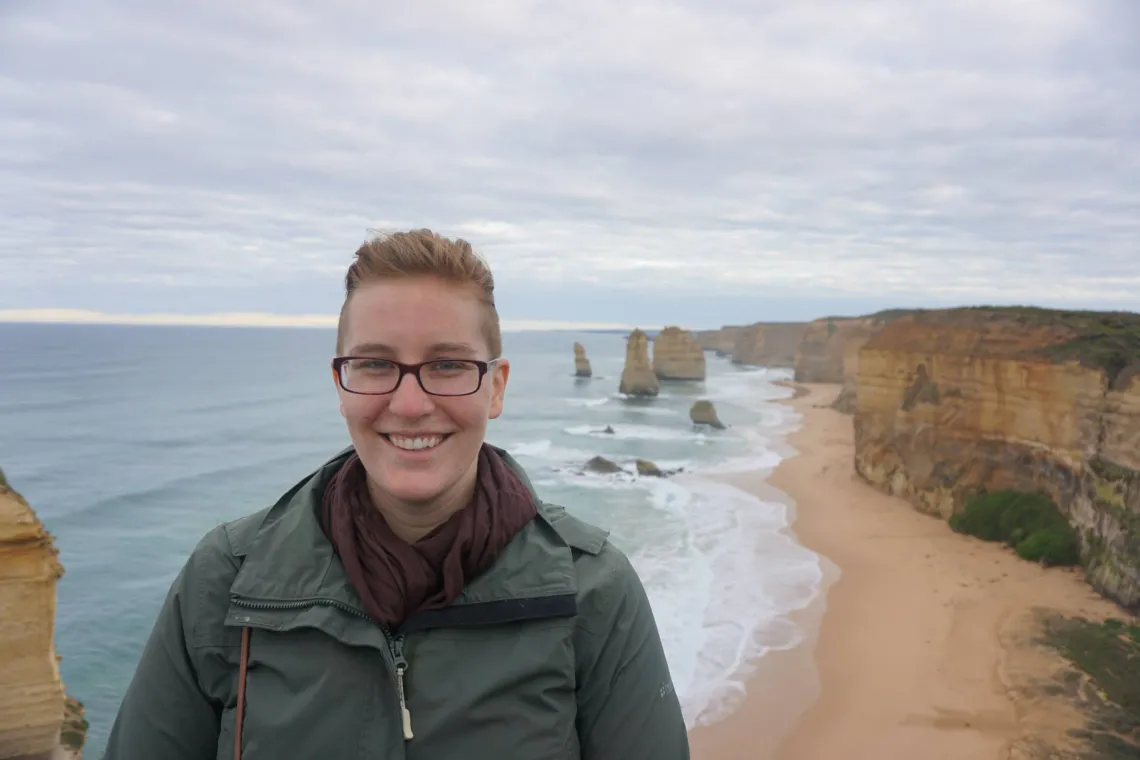Spotlight on Elise Bell - EAPSI

My name is Elise Bell, and I’m a fourth year PhD candidate in the Department of Linguistics. My research focuses on the variety of Welsh that is spoken in the Patagonia region of Argentina. My dissertation work is an examination of the ways that bilingualism with Spanish affects the way Argentinean Welsh speakers perceive and produce Welsh vowels. Because my research requires fieldwork to collect data, I’ve applied to quite a few fellowships and grants to fund my research related travel.
In my first two years at the University of Arizona, I applied twice for the NSF’s Graduate Research Fellowship Program, and did not receive it either time. I’m incredibly thankful to my past self for taking the time to apply during those busy fall semesters, though, because that process helped me discover the resources that were available on campus to assist me in crafting my application, and how to budget my time to work on both the immediate requirements of grad school (coursework, RAships) and to devote time to planning for the future by applying for funding.
In my third year, I applied for the NSF’s East Asian and Pacific Summer Institutes (EAPSI) program. EAPSI is a joint program between the NSF and its equivalent organizations in Pacific Rim countries (Japan, China, Singapore, Taiwan, Australia, and New Zealand). The program gives U.S. graduate students the opportunity to conduct research in another country while acquiring first hand research experience and establishing international collaborations. EAPSI applications must be sponsored by a researcher in the host country, and one of the largest stumbling blocks to a successful application is not establishing contact with a host researcher early enough in the application process. I received an EAPSI fellowship based on my proposal to investigate how child speakers of North Australian Kriol are (or are not) influenced in their speech by the English they learn in school. I worked with my host researcher Dr. Brett Baker at the University of Melbourne to revise my application and it was accepted.
I travelled to Melbourne, Australia in the summer of 2015 for eight weeks, during this time we finalized our experiments, travelled to the Northern Territory to collect data in two remote communities, and returned to Melbourne to analyze and write up our results. Aspects of that work were accepted for presentation at conferences in both the U.S. and Australia, and a paper is forthcoming. After I returned, I was even invited back to present about my experience at the annual orientation meeting in Washington, D.C., for the next year of EAPSI fellows! EAPSI was one of the most valuable experiences I’ve had in my graduate career so far, and I would highly recommend to anyone in STEM or education to consider how their work could benefit from collaboration in an EAPSI partnership country.
Since returning from my EAPSI fellowship, I’ve applied for many more grants and fellowships, including the American Philosophical Society’s Lewis & Clark Fund for Exploration and Field Research (which I didn’t receive, but will be applying for again this year) and the Tinker Foundation’s Fieldwork grant (which I did receive, and which funded my dissertation pilot research travel to Argentina in Summer 2016). Applying for fellowships still feels like a shot in the dark to me, but it really isn’t. Whether or not you are awarded the fellowship in the end, you’ll have established a research plan and discovered new ways to present yourself and your research to a broader audience. Those skills are applicable well beyond graduate school - they’re valuable for job and grant applications far in the future.
For more information on Elise Bell and her research, see her website: http://elisebell.github.io/website/
The GradFunding Newsletter is a service of the University of Arizona Graduate College, Office of Fellowships and Community Engagement. You may reuse this article but please acknowledge Shelley Hawthorne Smith and the University of Arizona Graduate College Office of Fellowships and Community Engagement.
To subscribe or unsubscribe to the newsletter, send an email to list@list.arizona.edu (link sends e-mail) with "subscribe (or unsubscribe) gradfunding FirstName LastName" in the subject line. You may send opportunities for posting or questions to address to the newsletter editor, Shelley Hawthorne Smith (shellh@arizona.edu)

